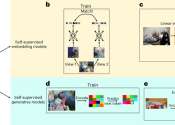Psychology (Greek: Ψυχολογία, lit. "study of the mind", from ψυχή psukhē "breath, spirit, soul"; and -λογία, -logia "study of") is an academic and applied discipline involving the systematic, and often scientific, study of human/animal mental functions and behavior. Occasionally, in addition or opposition to employing the scientific method, it also relies on symbolic interpretation and critical analysis, although it often does so less prominently than other social sciences such as sociology. Psychologists study such phenomena as perception, cognition, attention, emotion, motivation, personality, behavior and interpersonal relationships. Some, especially depth psychologists, also study the unconscious mind.
Psychological knowledge is applied to various spheres of human activity, including issues related to everyday life—such as family, education and employment—and to the treatment of mental health problems. Psychologists attempt to understand the role of mental functions in individual and social behavior, while also exploring the underlying physiological and neurological processes. Psychology includes many sub-fields of study and applications concerned with such areas as human development, sports, health, industry, media and law. Psychology incorporates research from the natural sciences, social sciences and humanities. A professional theorist or practitioner of psychology is called a psychologist.









